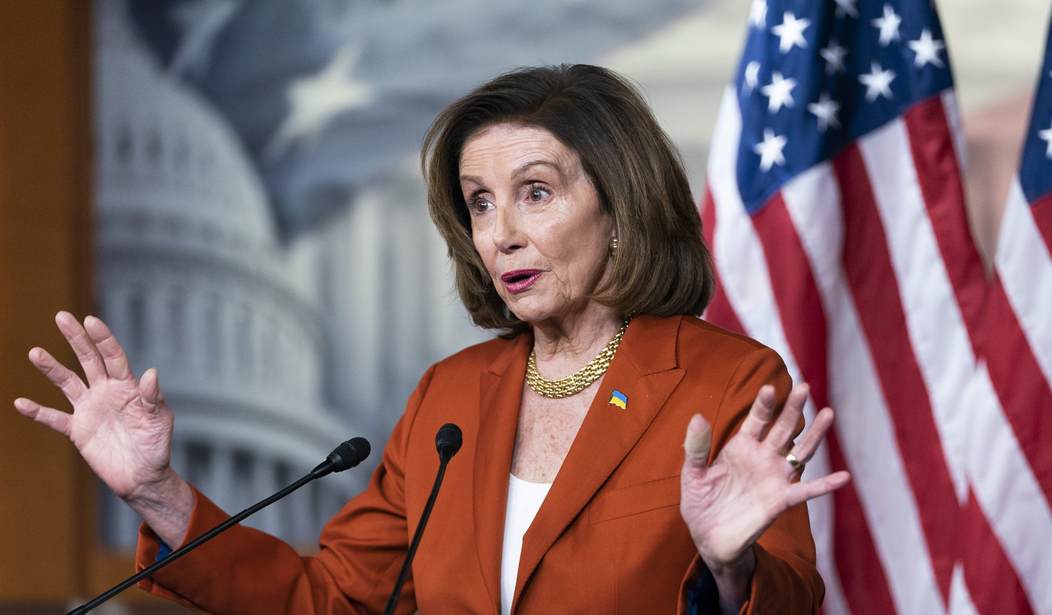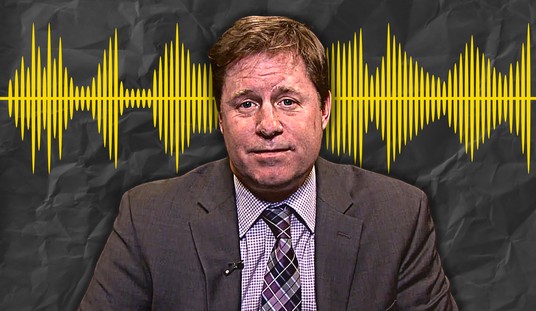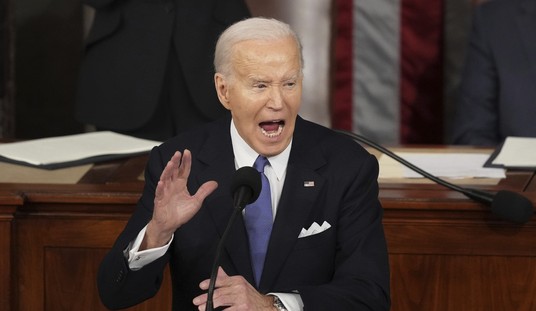Townhall has been covering the insistences from Sen. Joe Manchin (D-WV) and Senate Majority Leader Chuck Schumer (D-NY) that the pipeline permitting reform agreement made between them will be in the continuing resolution (CR) which must pass by September 30 to fund the government. Manchin made such a deal in return for his support for the misnamed "Inflation Reduction Act," which President Joe Biden signed into law last month and celebrated at the White House in last week's tone deaf celebration. Yet for all these assurances from leadership, it's not exactly a done deal given the rebellion from some fellow Democrats.
Last week, reports from CNN and The Hill touched upon those disagreements in the House.
As bears reminding, Sen. Manchin--as well as the American people--could very well find themselves screwed over. Democrats such as Rep. Raúl Grijalva (D-AZ) who chairs the House Natural Resources Committee and now Rep. Pramila Jayapal (D-WA), who leads the House Progressive Caucus, have emphasized that they weren't part of the negotiations.
“It's not that we're against any permitting reforms -- there needs to be a consultative process with the House,” Jayapal said, adding: "As I told the White House this morning, we were not part of that deal.“ More on the GOP and progressive opposition: https://t.co/pah8Jz2eNk
— Manu Raju (@mkraju) September 15, 2022
On Tuesday, Ella Nilsen and Manu Raju wrote for CNN how "Unlikely alliance resists Manchin-Schumer energy deal, putting government funding bill on shaky ground."
It's not just House Democrats, but Republicans who are irked that Manchin went ahead and agreed to sign onto the so-called "Inflation Reduction Act."
"But an unlikely alliance is forming between progressives alarmed at the deal's potential environmental impact and Senate Republicans still livid that Manchin cast the vote that ensured the health care and energy bill's enactment into law. Now the GOP is in no mood to give Manchin a win he would undoubtedly tout ahead of a difficult 2024 reelection bid, as they criticize the proposed deal as too meager," the piece warned, which also included a statement from Sen. John Thune (R-SD).
Recommended
"There are going to be folks who have concerns about loading the Manchin provision onto the CR as part of what a lot of our folks believe is a backroom deal that was cut with the Democrats a long time ago," Sen. Thune, the No. 2 Republican in the body who is the Senate Minority Whip.
Sen. Richard Shelby (R-AL) is quoted as calling the Manchin-Schumer deal "raw politics."
In July, House Republicans sought to get back at Manchin for signing onto the deal by trying to block passage of the the CHIPS and Science Act in their body, though they were ultimately unsuccessful as the bill passed and was signed into law. This move from House Republican leadership came right after the Manchin-Schumer deal was announced, which was after the Senate had passed the CHIPS Act.
When it comes to House Democrats, Rep. Jayapal is not only quoted as being blunt in saying "We don't like it. We didn't agree to it," but demanding more of a say if they're to support the concept of permitting reform.
From CNN's report:
Jayapal said that House progressives are open to discussing other ways of passing permitting reform -- as long as they get a say in how it's written. She floated attaching a proposal to the annual defense policy bill later in the year.
"It would give a chance for some input for House members to really grapple with what is the right permitting reform here," Jayapal said.
Last fall, Jayapal's caucus caused a bit of a headache in the House when it came to the timing of passing bills sold as having to do with the infrastructure and President Joe Biden's Build Back Better Act.
On Wednesday, Rachel Frazin and Mike Lillis went with a more positive narrative for The Hill in that "Pelosi confirms Manchin deal while downplaying clash with liberals." Their report, by the way, doesn't mention the legislation by name, a habit of some in the mainstream media, but rather describes it as "a much larger health and climate bill."
House Speaker Nancy Pelosi's assurances do seem at best rather casual, though, with confusion from other Democrats in leadership who are making the argument about not being part of the negotiations.
From the piece:
Speaker Nancy Pelosi (D-Calif.) signaled Wednesday that she could back a side deal between Democratic leaders and Sen. Joe Manchin (D-W.Va.) if it is included in a Senate bill funding the government, setting up a potential clash with liberals in the debate over climate change.
...
“We had agreed to bring up a vote, yes,” she said, adding that “we never agreed on how” that vote would go down.
House Majority Leader Steny Hoyer (D-Md.) stirred some confusion on Wednesday when he declared in no uncertain terms that no House Democrats, Pelosi included, have endorsed the deal.
“The Speaker has said she was not part of that agreement. I was not part of that agreement. Our committees were not part of that agreement,” Hoyer said during a press briefing. “I’m not critical of the agreement. I have questions about it, concerns about it. But having said that, this is not our agreement.”
The discordant statements left many Democrats scratching their heads — and looking for more clarity from leadership as the party scrambles to get on the same page and keep the government running beyond Oct. 1.
Also mentioned is Rep. Rose DeLauro (D-CT), who, while she opposes the deal, is quoted as acknowledging the importance of funding the government. "I’m not supportive of that piece," she said. "But also, there’s the issue of where we go in terms of keeping the government open." She was also quoted in the CNN piece as saying "We certainly are not shutting the government down."
There's also mention of the trouble Rep. Grijalva (D-AZ) is looking to make when it comes to the deal:
In the House, there is significant resistance on the Democratic side from progressives who argue that it could speed up polluting and planet-warming fossil fuel projects.
Nearly 80 members signed onto a letter opposing the permitting reform and calling for its exclusion from the government funding measure or any other must-pass legislation.
In a written statement earlier this week, the leader of the opposition, Rep. Raúl Grijalva (D-Ariz.), warned that insistence on including the reforms in the CR could result in a government shutdown.
“Give us a clean CR and let these dirty permitting provisions stand up to congressional scrutiny on their own. Now is not the time to roll the dice on a government shutdown,” he told The Hill.
That piece also makes note of Republican resistance to the bill, and how it could play into a Pelosi strategy, but again, it appears to more optimistic:
If Democratic leadership can’t get enough support within their own party, House Republicans are one place they could go for potential votes to fund the government. Republicans have long supported changes to the permitting process, arguing that it’s currently too lengthy and holds up important infrastructure.
Pelosi is generally loath to getting GOP votes to pass government funding measures, however, and Republicans in this case may have zero interest in offering help.
Additional uncertainty stems from the fact that there is no legislative text outlining what exactly Manchin’s reforms would look like, and Manchin’s office has only released a broad summary.
The September 30 deadline is now just a week and a half away. If a government shutdown were to happen, less than two months before the midterms, Democrats could find themselves in another losing position.

























Join the conversation as a VIP Member